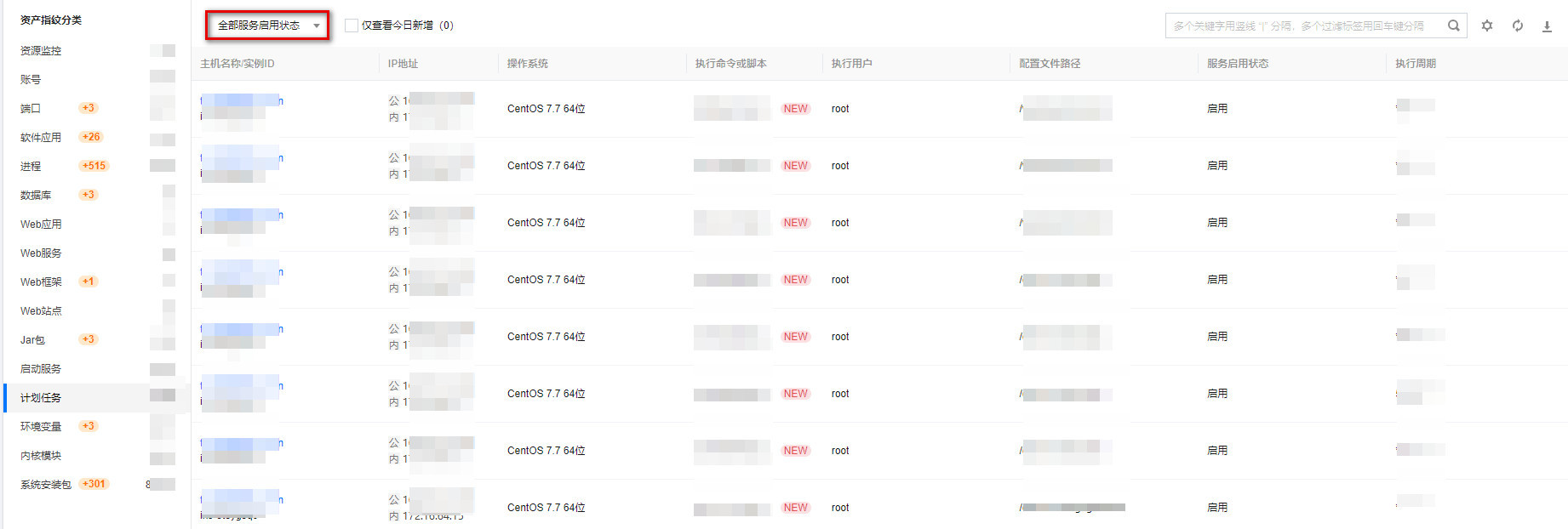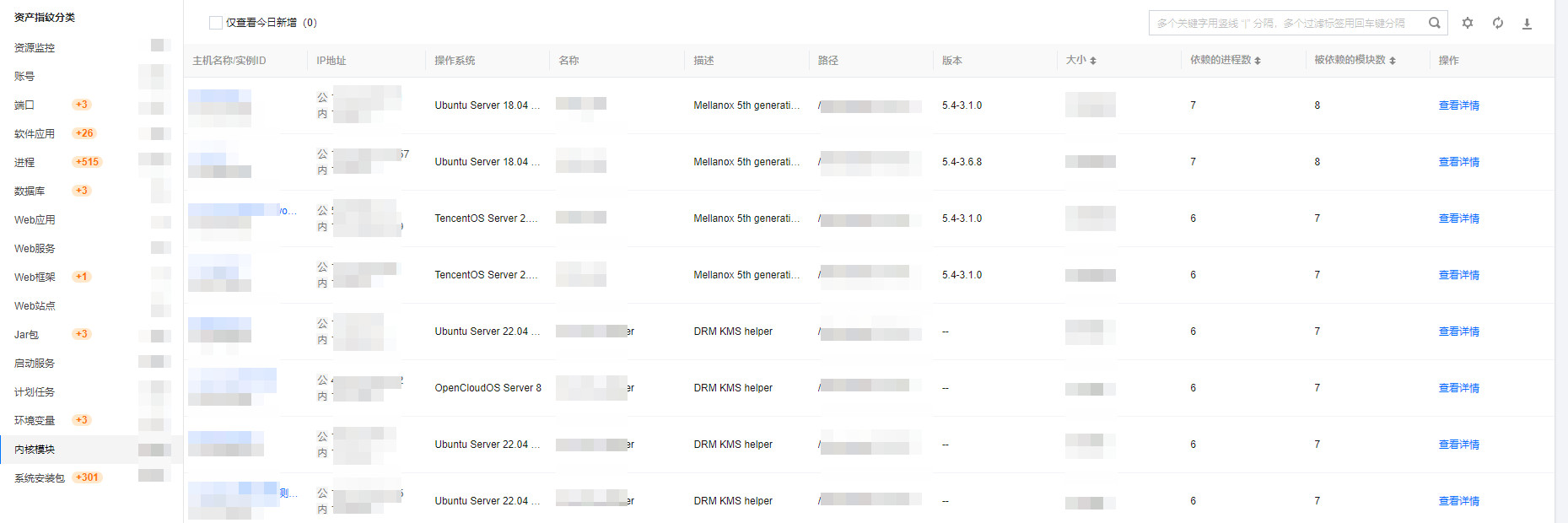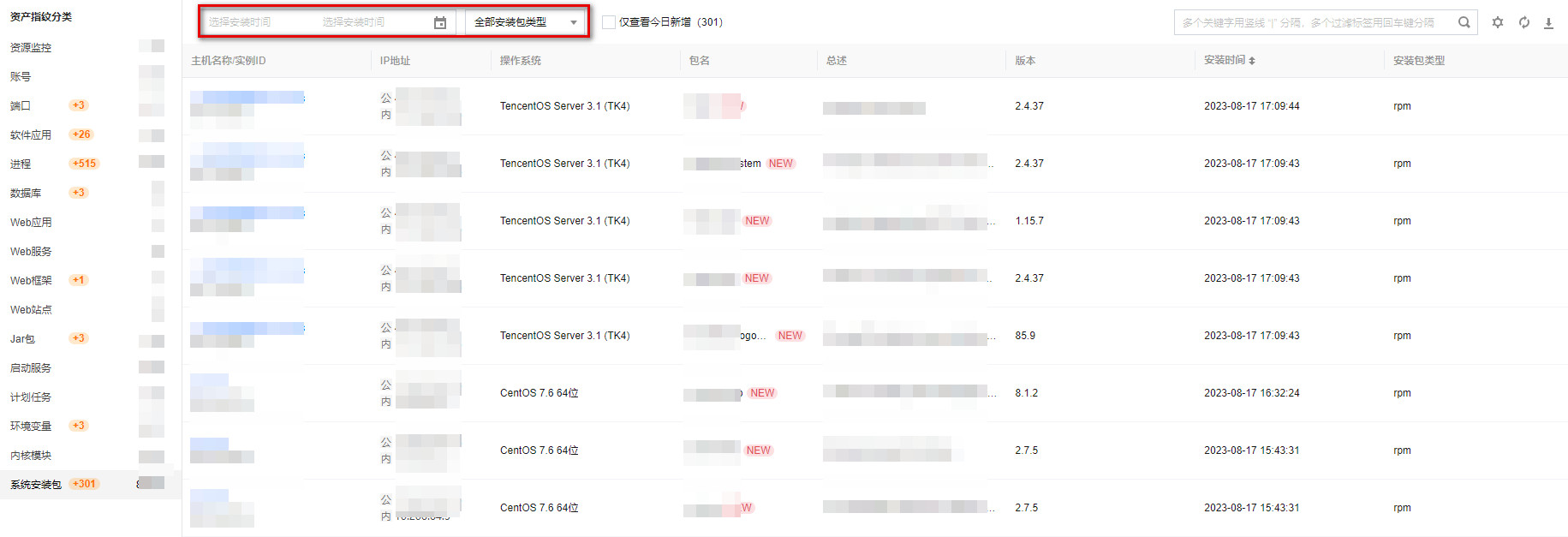资产指纹
最后更新时间:2024-08-13 16:29:49
本文将为您介绍资产指纹的功能和操作。
概述
采集资产指纹,可为您提供主机资源监控、账号、端口、进程等详细的资产盘点数据,同时,您也可以基于资产指纹功能,对已发生的安全事件风险影响面进行快速调查。
限制说明
各版本支持采集的资产指纹如下:
防护版本 | 采集的资产指纹 |
基础版(免费) | 不支持 |
专业版 | 10项:资源监控、账号、端口、进程、软件应用、数据库、Web 应用、Web 服务、Web 框架、Web 站点 |
旗舰版 | 16项:资源监控、账号、端口、进程、软件应用、数据库、Web 应用、Web 服务、Web 框架、Web 站点、Jar 包、启动服务、计划任务、环境变量、内核模块、系统安装包 |
说明:
资产指纹数据每隔8小时自动采集一次,支持手动采集。
操作指南
1. 登录 主机安全控制台,单击左侧导航中的资产指纹。
2. 在资产指纹页面,展示了资产指纹分类列表,包括各资产指纹项及其对应服务器数量。在左侧资产指纹分类列表中选中一项后,右侧将展示该指纹详情,支持对指纹数据的查询和导出。
说明
各资产指纹搜索功能均支持模糊搜索。

资产指纹分类说明如下:
资源监控
对服务器系统负载、内存使用、硬盘使用进行数据采集。

账号
对服务器所有账号进行采集。

端口
对服务器所有已使用端口进行采集。

进程
对服务器的所有运行进程进行采集。

软件应用
对服务器所有运行中的软件应用进行采集。

数据库
对服务器所有运行的数据库进行采集。

Web 应用
对服务器所有运行的 Web 应用进行采集。

Web 服务
对服务器所有运行的 Web 服务进行采集。

Web 框架
对服务器所有应用的 Web 框架进行采集。

Web站点
对服务器所有部署的Web站点进行采集。

Jar 包
对服务器所有的 Jar 包进行采集。

启动服务
对服务器所有的启动服务进行采集。

计划任务
对服务器所有的计划任务进行采集。

环境变量
对服务器所有的环境变量进行采集。

内核模块
对服务器的所有内核模块进行采集。

系统安装包
对服务器的系统安装包进行采集。

文档反馈

